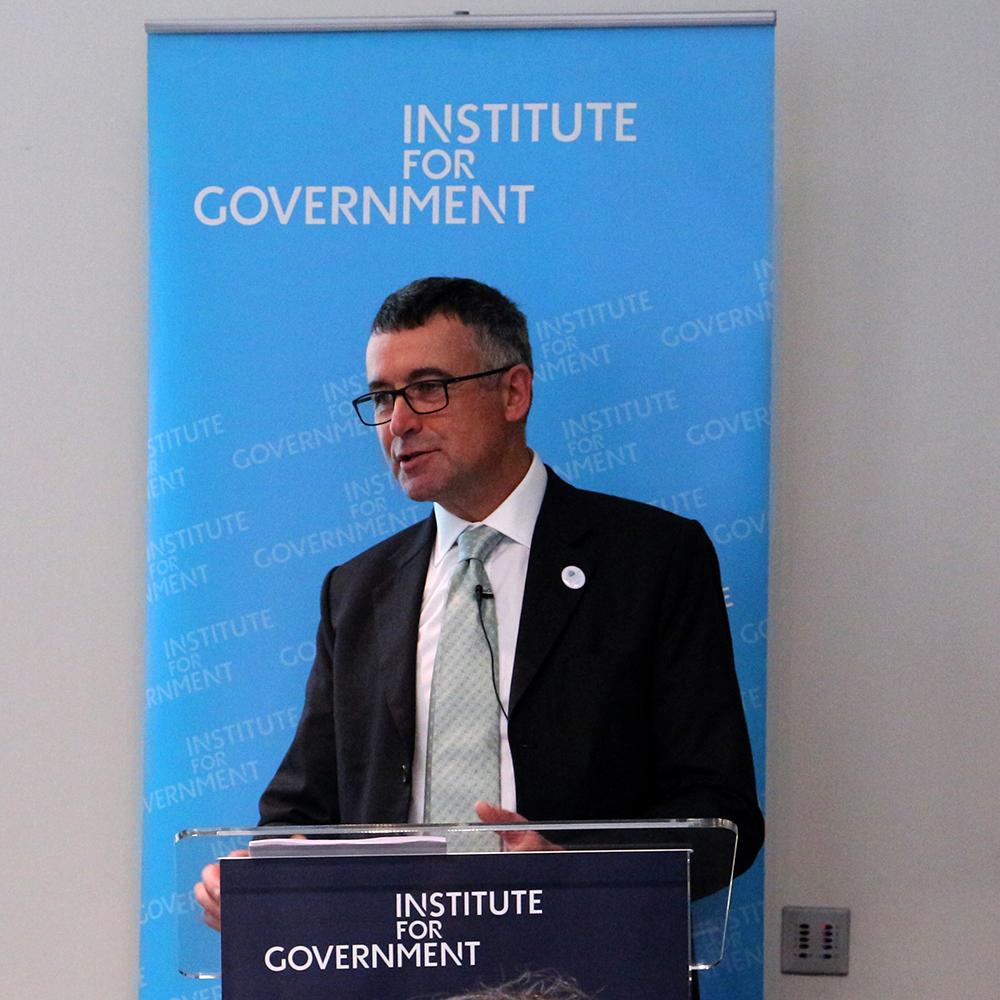Bernard Jenkin reveals more about his inquiry into the Civil Service
Bernard Jenkin MP, Chair of the Public Administration and Constitutional Affairs Committee, spoke at the Institute for Government last week
Bernard Jenkin MP, Chair of the Public Administration and Constitutional Affairs Committee, spoke at the Institute for Government last week. Julian McCrae says it reveals a lot about the Committee’s ongoing inquiry into the Civil Service.
Bernard’s speech was different from most political speeches about the Civil Service. Normally a politician gives you a strong diagnosis – usually that everything is going to hell in a handcart – followed by a confident assertion that a particular set of specific changes will put everything right.
But this is not Bernard’s approach.
His core theme is that the Civil Service, like any large and complex institution, is bound together by the relationships of those working within it. If you want to improve how the organisation works, you need to concentrate on strengthening these relationships.
Jenkin remarked a number of times that change in the Civil Service cannot come from outside, from the confident prescriptions of Parliament or anyone else, but must come from within. For him, staff engagement is vital and needs to be a central component in the appraisal of permanent secretaries.
While his speech probably owes more to the pages of the Harvard Business Review than the typical cut and thrust of Westminster, that does not mean politics were absent.
Jenkin touched on the most powerful and compelling set of relationships in Whitehall: that between ministers and officials. How can officials provide constructive challenge when trust is scarce? Are special advisers and extended ministerial offices corroding the situation?
Questions from the audience focused on the relationship between the Civil Service and ministers, and I expect the inquiry to look at this closely. It’s tricky ground and will be fascinating to see if it can come up with constructive proposals.
I was slightly disappointed when Jenkin said his committee’s inquiry would concentrate on Whitehall, rather than the Civil Service as a whole. Of course every inquiry needs a focus, but it would be a shame if the relationships between ministers and officials took up all the oxygen, leaving no time for examining the often dysfunctional relationships between departments and quangos, or the need to adapt how we do policymaking to fit with how digital services are developed.
Dave Penman, General Secretary of the FDA, asked whether the inquiry would consider the size and capacity of the Civil Service when dealing with the pressure on government. With his Brexit hat on, Jenkin said the entire process must be kept as simple as possible, simply translating existing rules and programmes, including the Common Agricultural Policy, into domestic systems.
There is plenty of welcome for Jenkin’s speech. The Director General of the Civil Service Group at Cabinet Office, Indra Morris, agreed with almost everything he said.
The Guardian’s David Walker asked if Jenkin was 'actually a Tory', someone Walker characterised as having a drive to outsource the functions of the Civil Service. Jenkin robustly defended himself, saying that many of the changes since 2010 are about bringing capacity back in-house, especially in areas like digital development, where the Civil Service has lost too much vital capabilities. He also acknowledged that he had been on a personal journey – he now rejected some of his more ‘Thatcherite’ views on Whitehall that he’d held in his youth.
Former Cabinet Secretary Lord Turnbull asked if Jenkin’s reference to the Civil Service being a ‘Victorian or Edwardian institution’ means that Bernard does not recognise the profound changes in how Whitehall operates over Turnbull’s 30-year career. Jenkin assured him this was not the case. However, the exchange served as a reminder of how tricky it will be to ensure that an inquiry looking at relationships within Whitehall maintains its own with the wide range of people who have interests in the future of the Civil Service.
- Topic
- Civil service
- Keywords
- Civil servants Civil service reform
- Legislature
- House of Commons
- Publisher
- Institute for Government
